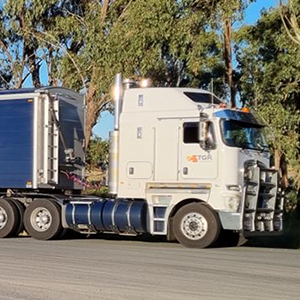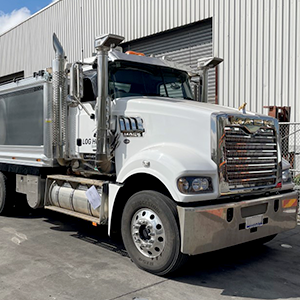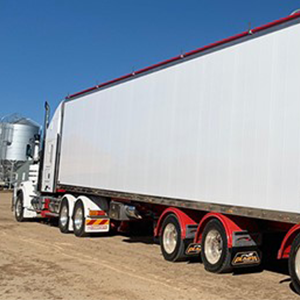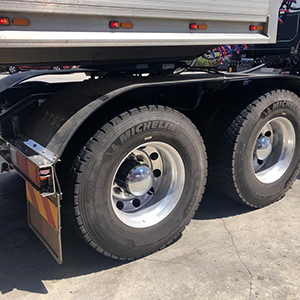
Published by:
Viv Sun
Introduced in October 2007, the Performance Based Standards (PBS) Scheme is a national initiative for the safer and more productive movement of Australia’s freight task. This scheme helps truck and transport operators improve their efficiency, sustainability, and safety through the adoption of innovative vehicle designs. While there are many benefits of PBS, for your vehicles… Read more »

Published by:
William Mitton
One of the challenges faced when using Performance Based Standards (PBS) is achieving the stability requirements while also meeting the loading height needs. For freight tasks that typically have high centre-of-gravity loads, such as livestock transport or car-carriers, this can prove to be difficult. As a result, operators of these loads typically don’t use PBS,… Read more »

Published by:
Daniel Nolan
Are you aware that owning a 3-axle truck and a 4-axle trailer might exempt you from requiring Performance-Based Standards (PBS) documentation? The National Heavy Vehicle Regulator (NHVR) introduced the Class 3 National Notice for 20m Long 3-axle Truck and 4-axle Dog Trailers just over a year ago. Whether or not you utilise this Notice, Advantia… Read more »

Published by:
William Mitton
Performance-Based Standards (PBS) are a set of regulations that focus on the safety and efficiency of heavy vehicles by assessing their performance. Where a PBS Design Approval (DA) demonstrates that a concept design meets PBS standards, a PBS Vehicle Approval (VA) confirms that the physical vehicle matches the design in the DA. To help clarify… Read more »

Published by:
Daniel Nolan
Victoria, New South Wales, and South Australia have taken significant steps toward accommodating low and zero-emission heavy vehicles by increasing axle limits, a move crucial for the integration of these eco-friendlier trucks into heavy vehicle networks. These concessions are in response to the fact that these heavy vehicles are typically heavier from the additional mass… Read more »

Published by:
William Mitton
In a milestone media release, the Truck Industry Council (TIC) and National Heavy Vehicle Regulator (NHVR) have stated “there is no justification in limiting axle masses when using appropriate wide single tyres given the improved vehicle stability and efficiency they bring. They should be permitted to operate at the same mass as equivalent dual tyred… Read more »

Published by:
William Mitton
While Performance Based Standards (PBS) allows for innovative, high-productivity vehicles, there are limits to the maximum possible Gross Combination Mass (GCM) at each level. There are two standards, which cause this: Gradeability A and Pavement Horizontal Loading. An explanation of each standard and the maximum possible GCMs to meet them are detailed in this article…. Read more »

Published by:
Matthew Ainsworth
The NHVR is in the process of developing the next phase of PBS, but what does this mean for industry? The Performance Based Standards (PBS) scheme sets on-road performance standards for many heavy vehicles in Australia. The scheme aims to improve the safety and productivity of the heavy vehicle industry by allowing vehicles that meet… Read more »

Published by:
William Mitton
As of 1 December 2022, the National Heavy Vehicle Regulator (NHVR) implemented generic tyres into the Performance Based Standards (PBS) scheme. This new scheme approximates tyre handling performance to be proportional to tyre load rating. As a result, tyre load index now influences PBS performance, where higher load indices positively affect results. To better understand… Read more »

Published by:
Matthew Ainsworth
As of 1 December 2022, the National Heavy Vehicle Regulator (NHVR) implemented generic tyres into the Performance Based Standards (PBS) scheme. There has been a three-month transitional period between the old tyre system and new tyre system, and from 1 March 2023, only the new system will be in use. Gone are the days when… Read more »









